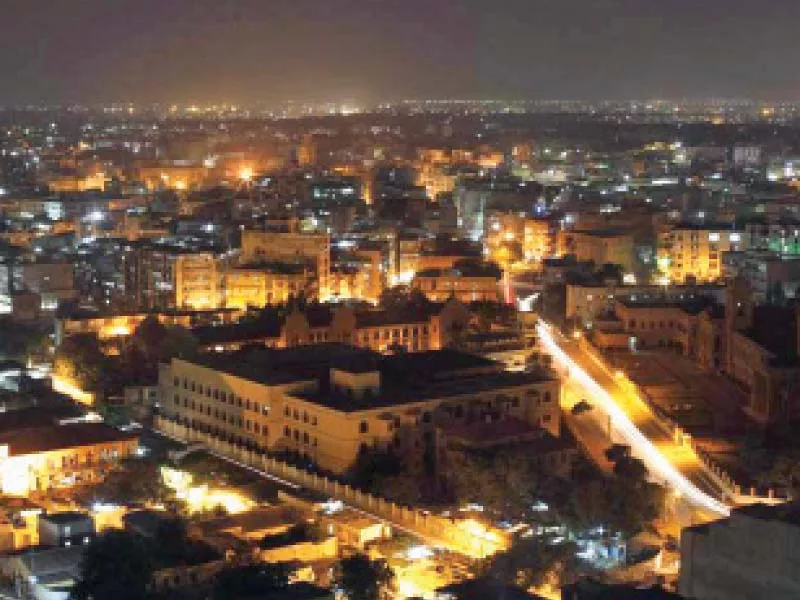IMF delays approval of review for $450m tranche
Lender says its priority has shifted to approval of $1.4b rapid financing facility
ISLAMABAD: The International Monetary Fund (IMF) has postponed approval of second review of the $6-billion bailout programme that was scheduled for coming Friday due to delay in implementing agreed actions by Pakistan.The IMF has confirmed the development but says its priority has now shifted to the approval of a rapid financing facility of $1.4 billion.
The Ministry of Finance told The Express Tribune that the IMF did not inform it about any delay in approval of the second review of the 10-month-old loan programme.
In February, Pakistan and the IMF agreed that the fund’s executive board would approve the second review for release of a third loan tranche of $450 million on April 10, subject to fulfilling of all the conditions by the Pakistan government.
According to the IMF’s February 27 statement issued to announce a staff-level agreement, “The (staff-level) agreement is subject to approval by the IMF management and consideration by the executive board, which is expected in early April.”
Sources said the IMF board would not take up Pakistan’s request for approval of the second review for the October-December 2019 period under the Extended Fund Facility (EFF) on April 10. “The priority now is to move ahead with the Rapid Financing Instrument (RFI). The IMF team and Pakistani authorities are working hard for prompt approval and disbursement,” stated IMF Resident Representative Teresa Dabán Sanchez. She had been requested to comment whether the IMF was still taking up Pakistan’s case on April 10.
The initial tentative agreed date, as given in IMF documents, for approval of the second review was March 6, which the IMF extended to April 10. The IMF has not given fresh date for approval of the second review. But $1.4 billion in additional facilities for Covid-19 related relief may be approved this month.
Pakistan had sought $1.4 billion worth of emergency facility from the IMF to offset the impact of Covid-19 on its external sector.
Sanchez said regarding the EFF, as IMF Managing Director Kristalina Georgieva stated in her announcement of Pakistan’s RFI request, the Pakistani authorities remained committed to the policies and reforms outlined under the EFF-supported programme.
“The priority now is to get the RFI in motion and there will be a board meeting soon that will discuss, assess and provide guidance on next steps,” said Sanchez.
But a delay in approving the second review may create more problems for the government due to its implications for markets and Pakistan’s financial relations with other multilateral lenders.
The given reason that the IMF delayed approval of the review because it was only taking up Covid-19 related work is factually incorrect. In the previous week (March 30 to April 3), the IMF board approved eight regular reviews of various countries and Article-IV cases, according to the IMF’s website. On Friday, April 3, the IMF executive board completed the second review of Sierra Leone’s performance under the Extended Credit Facility (ECF) and sanctioned release of $21.3 million.
Moreover, on the same day, the board completed the sixth and final review of Togo’s economic performance under the Extended Credit Facility and released $131.3 million.
Both these economies are too small and not in distress situation as compared to Pakistan.
On March 31, the IMF executive board concluded Article-IV consultations with Belgium, which too does not fall within the definition of Covid-19 cases.
“We have not been informed of any delay” by the IMF, said Omar Hamid Khan, spokesman for the Ministry of Finance. He did not address the question of whether the date of April 10 remains intact. Talks for Pakistan’s second review remained tough since February 3 when the dialogue began.
The IMF staff returned to Washington on February 14 without reaching a staff-level deal due to disagreement over a mini-budget and increase in electricity tariffs.
Two weeks later, the IMF staff and the Pakistani authorities reached the staff-level agreement on policies and reforms needed to complete second review of the programme.
Last month, FBR’s acting chairperson Nausheen Javaid claimed before the Public Accounts Committee that the IMF had agreed to further reduce Pakistan’s tax collection target from Rs5.2 trillion. But the Ministry of Finance said no such agreement had been reached with the IMF.
The IMF had given a Rs5.503-trillion tax collection target to the FBR for the current fiscal year. Tax authorities collected Rs3.06 trillion in first nine months of the current fiscal year - a shortfall of Rs693 billion.
Published in The Express Tribune, April 7th, 2020.
Like Business on Facebook, follow @TribuneBiz on Twitter to stay informed and join in the conversation.


COMMENTS
Comments are moderated and generally will be posted if they are on-topic and not abusive.
For more information, please see our Comments FAQ